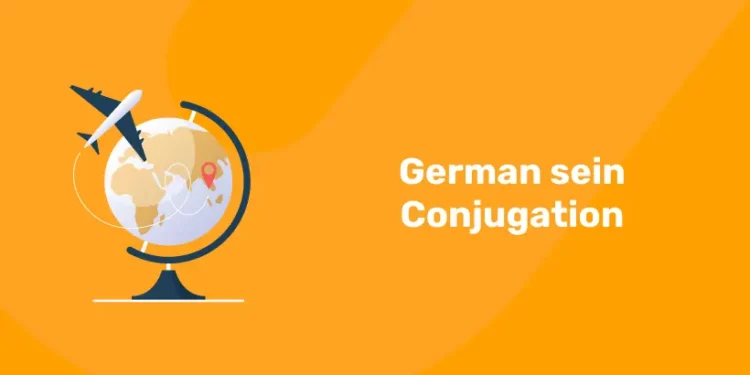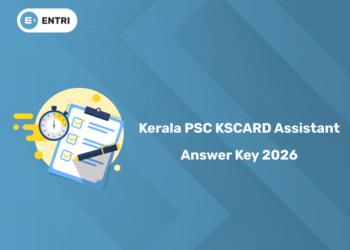Table of Contents
In German language “sein” is a frequently used irregular verb. The verb “sein” means “to be” in English. It is an inevitable part of the German language. It can act as a powerful auxiliary verb in the German language. The German word “sein” is used to describe a particular state of the verb.
While formulating sentences, it is really important to understand the function and objective of the verb “sein” in German. The conjugation of the verb shows deviation tremendously. For a non-native German it is important to understand the patterns of the “sein”. The German learners should be familiar with the commonly used verbs.
Master the German Language with Entri App! Click Here for Free Trial Class!
The Basics of the German Verb “Sein”
The “to be” in English has a German equivalent which is “sein”. The “sein” is widely used for describing things, subjects or determining the presence of something, identifying things and in the formulation of compound tenses. The “sein” can also act as an auxiliary verb in German. German communication without “sein” is unimaginable as it forms the major part of the daily conversations in German.
Master the German Language with Entri App! Click Here for Free Trial Class!
Conjugating “Sein” in Present Tense (Präsens)
1: How do you say "Good Morning" in German?
The present tense conjugation of “sein” is highly irregular but always in use. The current situations can be defined especially the habitual actions can be expressed with the present tense of “sein”. While describing the universal truth, the present tense or “sein” is widely used.
Free German A1 Mock Tests – Powered by AI!
Test your skills on our interactive platform. Get instant feedback from our AI to help you communicate better and track your progress. Start your free German mock test now.
Test Your German A1 for FreeConjugating “Sein” in Past Tense
The past events can be described with the help of “sein” in German. The written narratives and the formal statements can be expressed with the help of “sein” in German.
Master the German Language with Entri App! Click Here for Free Trial Class!
The Present Perfect (Perfekt) Tense with “Sein”
In German, the perfect tense of “sein” acts both as the main and auxiliary verb. The past participle form of sein “gewsen” is conjoined with the auxiliary verb “sein”.
The Future Tense (Futur I) with “Sein”
By joining “sein” with yet another auxiliary verb “werden” the future tense of “sein” can be formed. The future actions can be described along with the predictions and intentions with the help of the “sein” in future.
Master the German Language with Entri App! Click Here for Free Trial Class!
Free German A1 Mock Tests – Powered by AI!
Test your skills on our interactive platform. Get instant feedback from our AI to help you communicate better and track your progress. Start your free German mock test now.
Test Your German A1 for FreeIrregularities in the Conjugation of “Sein”
In German, “sein” is regarded as an irregular verb with fluctuations and deviations. One of the most popular deviations is the stem changes. The stem changes in both past and present tense. Endings are unpredictable when you regard the patterns. The complexity of “sein” increases when changes to various tenses.
Usage of “Sein” in Common German Expressions
Idiomatic expressions in German will always make use of “sein” for the heightened sense of language intricacies. “Sein” is used in day-to-day communication as an essential tool.
- Ich bin reich
- Wir sind Ärztinnen
- Ich bin Lehrer.
- Wir sind hier.
- wir werden gewesen sein
- Ich hatte gegessen
Master the German Language with Entri App! Click Here for Free Trial Class!
Common Mistakes When Conjugating “Sein”
Here are some basic common mistakes that should be avoided while using “sein” in German.
- Never mix the forms, the past and present forms.
- Forms in German are pretty important and you should have a strong command over the tenses and forms.
- Never confuse between the present and past forms of “sein”
- Irregularities should be considered and never overlook
- Prevent yourself from misusing the forms
- Auxiliaries verbs should be properly understood
Master the German Language with Entri App! Click Here for Free Trial Class!
The verb “sein” is an inevitable part of the German everyday conversation. If you are planning to migrate Germany, you need to consider learning the nuances of the language by understanding its form and tenses. Get a grip on the language and speak German with confidence.
Learn German with experts at Entri. Entri’s German course will allow you to understand the nuances of the language within a limited period. You will get personalised mentorship to enhance your learning experience. The Entri’s expert team will allow you to learn at your own pace at your comfort zone. The regular practice sessions, feedback sessions and assessment sessions will trigger you to learn effectively. Learn with experts at Entri.
| Related Links | |
| How To Say They In German | |
| How To Say No Problem in German | How to say “shut up” in German |
| How to Say “Where is” in German | How to say “sweet dreams” in German |












